May 2019 Commencement
Attendees at the University of Utah’s 150th commencement ceremony can look forward to hearing speeches from two incredible individuals: Reverend France A. Davis and student speaker T. Alisa Cloward. The commencement ceremony will take place on Thursday, May 2 at 6 p.m. in the Jon M. Huntsman Center.
Commencement speakers are invited each year by the president of the U after consulting with students, members of the Board of Trustees and administration of the U. Selection of the student commencement speaker is a similar process. The selection committee seeks individuals who “will resonate with the graduating class, set a celebratory tone and bring honor to the U.”
Commencement Speaker: Rev. France A. Davis
Rev. France A. Davis is a renowned civil rights activist, religious leader, U alum and former faculty member. After moving to Salt Lake City in 1972, Davis became a teaching fellow and graduate student at the U before joining as a faculty member in the U’s Department of Communication and Ethnic Studies.
In an interview with The Daily Utah Chronicle, Davis said that one of his greatest memories at the U was “teaching classes that opened the eyes of students to the experiences of African Americans.” He also cited serving as pastor of Calvary Baptist Church as one of his greatest achievements.
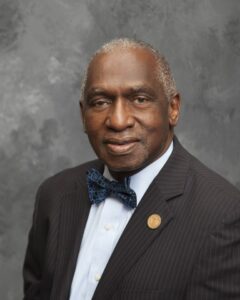
With regards to his reaction when asked to be commencement speaker, Davis said, “Well the first question was ‘Why me?’ The university usually, as I understand it, invites [commencement speakers] that have large numbers of resources and can contribute something — materially — to the welfare of the university.” He also said, “But then secondly I thought, ‘Well maybe this is an opportunity to me from the university to say what I think are some of the issues that need to be considered by the university and other schools.’”
One major point that Davis plans to address in his commencement speech is kindness. “Everybody needs to know that somebody cares about them,” said Davis. His speech will also talk about the need for students to “study in the classroom, get on-the-job training, be prepared to enter into the workplace as well as be good citizens in the community.”
When asked what one lasting impression he hopes those in attendance take away from his speech, Davis said, “I would like everybody to know that all of us are in this struggle together. And unless all of us work towards making it equitable for everybody, then all of us will suffer a bit.” Davis also said, “All of us have a contribution to make to whatever good there is in the community. Everybody has something to contribute to the conversation.”
Davis on Activism and Social Change
Davis was born in Georgia and participated in the March on Washington in 1963 and the Selma-to-Montgomery voting rights march in 1965. Since that time, Davis has “participated in the movement in Berkeley as well as trying to bring about changes in the State of Utah, including the Martin Luther King Jr. holiday.”
He was a student when he marched in the Selma-to-Montgomery voting rights march. “It was scary and dangerous because the authorities used their power against us until the president federalized the National Guard of Alabama and then we were guarded by them to be protected,” Davis said. “The exciting part of the march was the end, when Dr. Martin Luther King Jr. delivered his speech in front of the capitol in Montgomery, Alabama. There were people of all types, colors, religions and backgrounds that were part of it, but it was about trying to ensure that people could register and vote and not have to worry about poll taxes and literacy tests.”
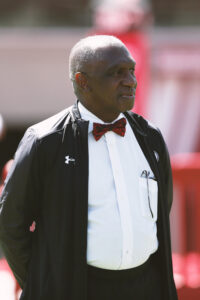
The Chronicle asked Davis whether he thinks protests and marches hold the same weight today as they did back then. “Back in those days there was one primary leader and one primary effort, and that effort was to ensure that everybody was treated the same under the law. Today, things are much more diverse. The issues are a variety of issues. And the approaches do not include one primary leader, so I think that it would be a different thing today than it was then.”
“I stayed in Utah because I sensed that Utah was behind in the human rights and issues that relate to the better welfare for people of the state. For example, when I came [to Utah] there was no fair housing in the state of Utah. Since that time, we’ve been able to get that done,” said Davis. “My mission has been to get the laws changed and to provide opportunities for people who are often times left out. Those opportunities come regularly with scholarship, persistence and guidance.”
Davis also shared his thoughts on what cross-cultural solidarity looks like to him and how students at the U can work towards achieving this. “I think that solidarity is important and so the students have to first of all know who they are themselves.” He continued, “They have to be familiar with people who are different and be willing to not just know those differences but to acknowledge them and celebrate those differences.”
Davis said the primary thing the U can do as an institution is to help unify the diverse student body on campus to work towards collective goals is to “make sure that everybody has access to educational opportunities that are needed in order [for students] to know what the issues are and to appreciate that what affects one person affects us all. Not a narrow kind of education for one group or one issue — a broad education.”
Student Commencement Speaker: Alisa Cloward

This year’s student commencement speaker is Alisa Cloward. Cloward lived 17 years in Japan with her parents and 11 siblings before moving to Utah for college.
After graduating from Salt Lake Community College in 2017, Cloward began attending the U, where she will be graduating in May with a Bachelor of Science in Business Administration and as a participant of the selective Miller Enrichment Scholarship program.
“I started studying business because I took a couple of business classes back when I was at SLCC and I got inspired, I loved it,” said Cloward in an interview with the Chronicle. She also commented that “the U of U and SLCC really work together to make it feel like a clear bridge from an associate degree to a bachelors degree.”
As a first-generation college student, Cloward was 16 years old when she decided to attend college. She said that one of her motivations for attending was that “nobody in my family had gone to college. Most of my family didn’t even have high school degrees. I had no idea really that [college] existed before that — I mean I knew of it, but I didn’t really know what it was — and even now I feel like I’m still figuring things out.”
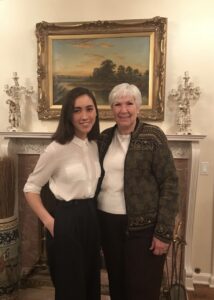
“Basically, I just watched so many movies about college before attending college, and I had a Tumblr at the time and all of my friends on Tumblr were studying for the SATs and the ACTs, and I was like ‘what is this?’” said Cloward.
“Talking about colleges — it was kind of like a dream,” Cloward said. “[College] was something that nobody in my family had ever done before, or something that I thought I would engage in.”
According to Cloward, “As a kid, we were home-schooled so we would have these huge grade books and each one was supposed to last throughout the year, but I loved school so much that I would finish it in the first month — I was really passionate about education.”
While people were always telling Cloward that she had a story to share, the main factor that motivated her to submit a commencement speech was her sister in Japan who told her, “‘I’m coming all the way to visit you when you graduate, I want to see something fantastic.’”
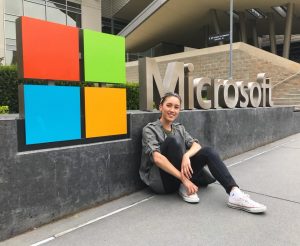
Cloward told the Chronicle about her reaction upon finding out that she was selected as a commencement speaker. “I was driving when a notification came in my car, saying ‘you have an email’, and so I asked Siri to read it, and then I heard I was selected as commencement speaker. I literally had to pull to the side, I couldn’t drive anymore. I pulled to the side and I was, like, dancing or jumping — I don’t even know what it was. I was so excited.”
Without ruining any surprises in her speech, she told the Chrony that her commencement speech is about her academic journey, which Cloward said is “something that’s so new and so important to me every day.” Cloward also said, “I think that just getting to really be myself with people who got me through [college] and motivated me helped me in a way to be able to embrace mistakes and understand that not everybody is perfect. Yeah, maybe I come from a different background from everyone, but everyone is still learning — everybody still struggles at Math 1010.”
After graduation, Cloward is thrilled to be working at Microsoft in Washington.
a.loret@dailyutahchronicle.com
This article has been updated to clarify some of Rev. France A. Davis’ quotes. We regret the error.


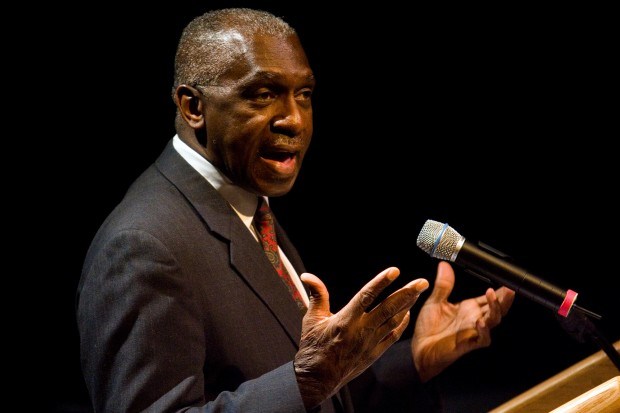
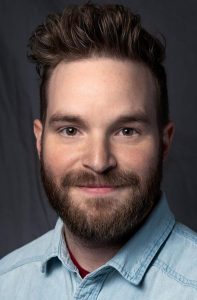
Emma • Apr 24, 2019 at 10:47 am
Editor: …not have to *worry* about poll taxes and literacy tests… ? ; also, …appreciate that what *affects one person *affects us all.
Kaitlin M • Apr 23, 2019 at 11:49 pm
Congratulations Alisa! I can’t wait to hear your speech!